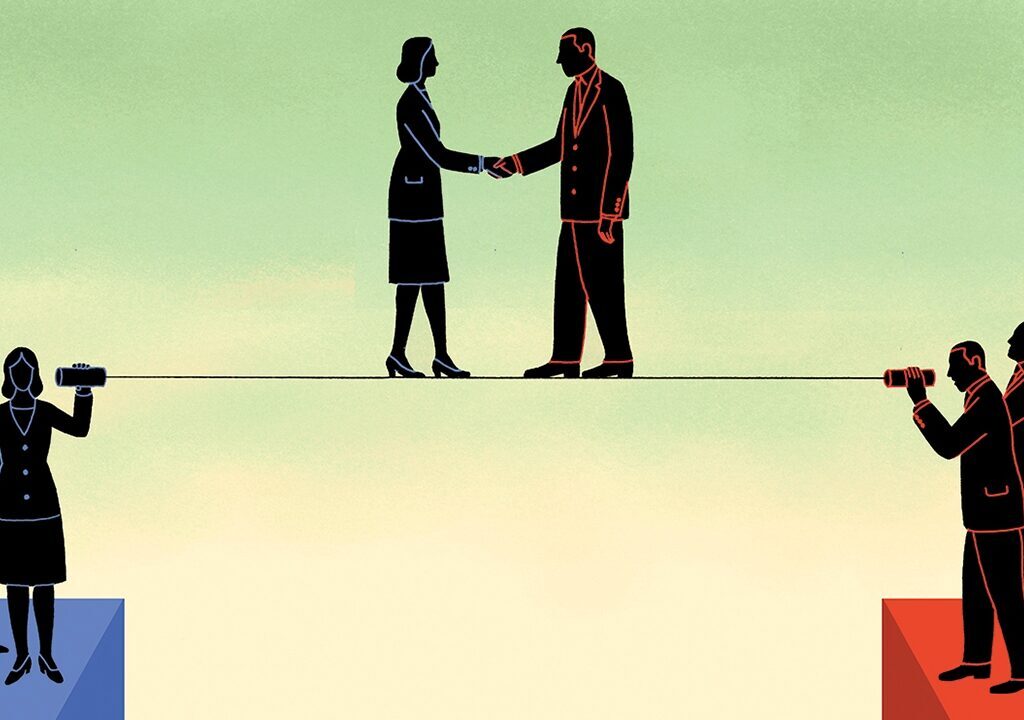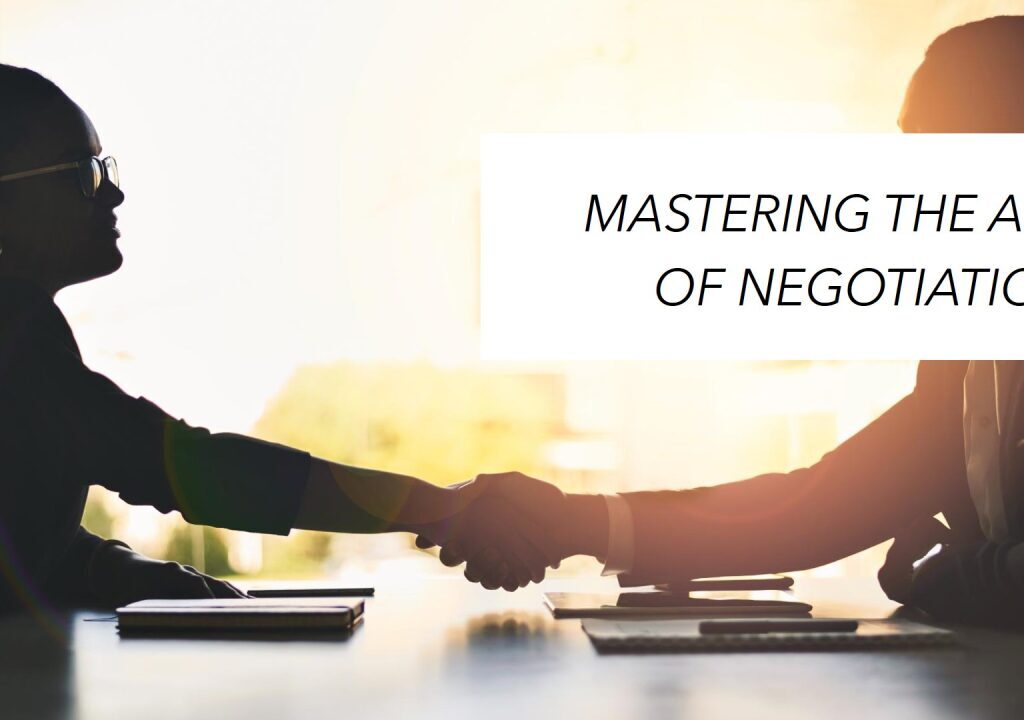
Imagine this: you’re up for a promotion, your dream job interview is tomorrow, or you’re negotiating a lower price on that perfect apartment. Butterflies flutter in your stomach, palms get sweaty – negotiation time! Negotiation isn’t a battle; it’s a dance, a collaborative effort to reach a mutually beneficial agreement. Feeling a little out of your depth? Don’t worry, this guide equips you with the essential skills to become a confident and persuasive negotiator, ensuring you get what you deserve.
The Negotiation Mindset: Shifting from Confrontation to Collaboration
Negotiation isn’t about winning or losing. It’s about finding common ground and creating a win-win situation for both parties. Think of it like baking a cake: you and the other negotiator each bring your ingredients (needs, desires) to the table, and through effective communication and compromise, you create a delicious dessert (the agreement) that everyone enjoys.
Here’s a metaphor to consider: Imagine negotiation as a tennis match. You and the other party are on opposite sides of the net, but instead of trying to overpower each other, you’re aiming for a well-played rally, strategically returning serves and working together to reach a satisfying conclusion (the winning point – the agreement).
By adopting a collaborative mindset, you foster trust and respect, creating an environment conducive to a successful negotiation.
Understanding the Negotiation Landscape: What Makes People Tick?
Negotiation isn’t just about facts and figures; it’s about understanding human psychology. People are driven by emotions, needs, and desires. The key is to identify these factors and tailor your approach accordingly. Consider these aspects:
- Needs and Interests: What does the other party need or want from this negotiation? Understanding their perspective allows you to craft a solution that addresses their concerns.
- Emotions: Negotiations can be stressful. Be mindful of your own emotions and those of the other party. Maintain a calm and professional demeanor, even if emotions run high.
- Communication Styles: People communicate differently. Pay attention to the other party’s communication style and adjust yours accordingly to ensure clear and effective communication.
Remember: Negotiation is a two-way street. By understanding the other party’s perspective, you can build rapport and increase your chances of a successful outcome.
Sharpening Your Negotiation Skills: Essential Tools for Success
Negotiation is a skill that can be honed and developed. Here are some key tools to add to your negotiating toolbox:
- Active Listening: Pay close attention to what the other party is saying, both verbally and nonverbally. Active listening demonstrates respect and allows you to identify potential areas of agreement.
- Powerful Questions: Ask open-ended questions to understand the other party’s needs and interests. This information empowers you to craft a more compelling offer.
- Win-Win Framing: Focus on solutions that benefit both parties. Frame your proposals in a way that highlights the mutual advantages of the agreement.
- Anchoring: Be the first to make an offer, setting the negotiation anchor point. This initial offer influences the final agreement, so make it strong and well-researched.
- Body Language: Maintain confident body language with good posture and eye contact. This projects professionalism and increases your credibility.
Remember: Effective communication is paramount. By actively listening, asking insightful questions, and expressing yourself clearly, you can navigate the negotiation with confidence.
Overcoming Negotiation Challenges: Avoiding Common Pitfalls
Negotiation isn’t always smooth sailing. Here’s how to navigate some common roadblocks:
- Emotional Reactions: Stay calm and collected, even if the other party gets emotional. Respond rationally and professionally, focusing on finding a solution.
- Information Asymmetry: Do your research! Gather as much information as possible about the negotiation topic and the other party’s position. Knowledge is power.
- Lack of BATNA (Best Alternative To a Negotiated Agreement): Know your walk-away point (BATNA). Having a strong alternative ensures you don’t settle for a bad deal.
- Time Pressure: Don’t be rushed into a decision. If you need more time to consider an offer, politely request it.
- Concessions: Be prepared to make concessions, but do so strategically. Focus on giving up less valuable things in exchange for gaining more important concessions from the other party.
Remember: Negotiation is a dance, and there will be moments of push and pull. Anticipate these challenges, stay prepared, and navigate them with grace and resilience.
Ready to Become a Negotiation Pro? Keep These Tips in Your Back Pocket
Here are some additional strategies to elevate your negotiation game:
- Practice Makes Perfect: Role-play negotiation scenarios with a friend or family member. The more you practice, the more confident and comfortable you’ll become in real-world negotiations.
- The Power of “No”: Don’t be afraid to say no to an offer that doesn’t meet your needs. A polite but firm “no” opens the door for further negotiation and a more favorable outcome.
- Positive Body Language: Maintain a confident posture with good eye contact and a genuine smile. Positive body language projects trustworthiness and increases your persuasiveness.
- Silence is Golden: Don’t feel pressured to fill every silence. Sometimes, strategic silence can encourage the other party to reveal their true position or make concessions.
- Ethics Matter: Always negotiate ethically and with integrity. Building trust and a positive relationship is key to long-term success, even if you don’t always get exactly what you want in this specific negotiation.

Remember: Negotiation is a skill that can be continuously improved. By incorporating these tips into your approach, you’ll be well on your way to becoming a confident and effective negotiator, ensuring you get what you deserve in your personal and professional endeavors.
Read Also
- Finding your passion: Tips to discover what truly excites you
- How to land your dream job: Essential resume and interview tips
- Essential marketing strategies for small businesses in 2024
- Top 5 Productivity Apps for Mobile in 2024
Conclusion: Negotiation – The Art of Striking Win-Win Deals
Mastering the art of negotiation empowers you to navigate life’s situations with confidence and achieve your goals. By understanding the psychology behind negotiation, developing essential communication skills, and anticipating potential challenges, you can transform yourself from a hesitant participant to a skilled negotiator, ready to strike win-win deals and get what you deserve. So, the next time a negotiation opportunity arises, remember these valuable tips, take a deep breath, and step into the arena with confidence!
Frequently Asked Questions (FAQs) on Mastering Negotiation
FAQ 1: Is negotiation appropriate in all situations?
Not necessarily. Negotiation can be time-consuming, and sometimes a direct approach may be more efficient. Use your judgment to determine if negotiation is the best course of action for the situation.
FAQ 2: What if the other party is a difficult negotiator?
Maintain a calm and professional demeanor. Focus on the facts and avoid getting drawn into emotional responses. If necessary, take a break to cool down and regroup before continuing the negotiation.
FAQ 3: Are there cultural differences in negotiation styles?
Absolutely! Research cultural norms around negotiation in advance, especially if you’re negotiating with someone from a different background. Understanding these differences can help you avoid misunderstandings and approach the negotiation with greater sensitivity.
FAQ 4: Can I negotiate my salary?
Absolutely! Do your research on average salaries for your position and location. Be prepared to justify your request with evidence of your skills and experience. Negotiating your salary can significantly impact your long-term financial well-being.
FAQ 5: What online resources can help me improve my negotiation skills?
There are numerous online resources available, including articles, videos, and even negotiation simulation courses. Invest some time in learning from negotiation experts to further hone your skills.
By embracing the art of negotiation and continuously developing your skills, you’ll be well-equipped to navigate life’s situations with confidence and achieve your goals. Remember, negotiation is a journey, not a destination. So, keep practicing, stay focused, and get ready to strike those win-win deals!


